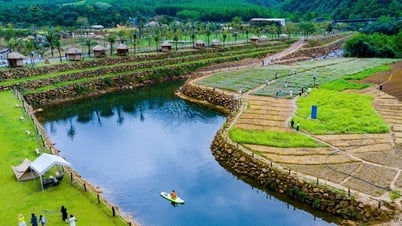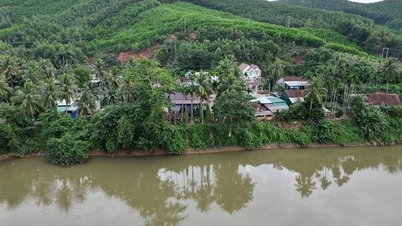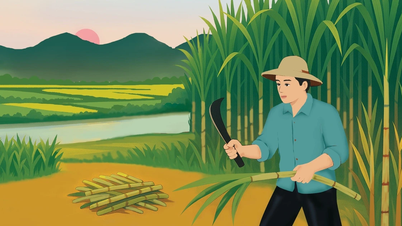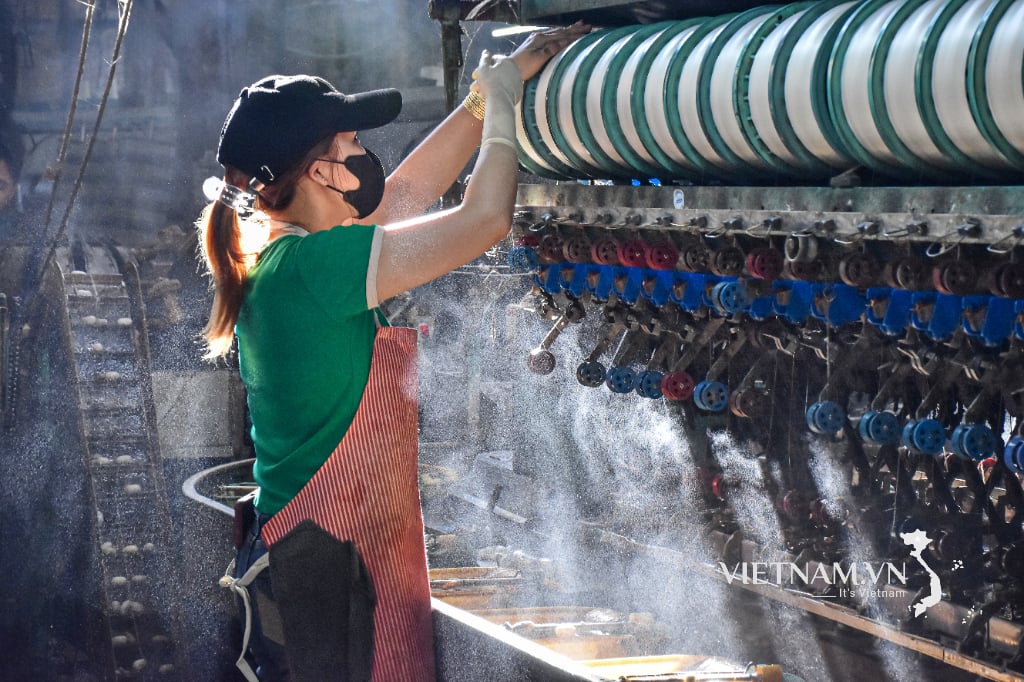(AI)
In those years, my village didn't have many ponds with sturdy embankments. After each harvest, when the water receded from the fields, people would gather to work. The adults brought hoes, shovels, baskets, nets, and so on. We children only brought our bare backs and eyes as eager as the scorching sun. Those were truly unforgettable days, filled with sunshine, wind, and laughter that filled the ditches. Everyone had a task, their hands swiftly scooping water out of the puddles, each bucket scooped up carrying a sense of anticipation. Soft mud clung to our toes, the wind from the fields blew fiercely, and the sun shone down like honey on our backs. All weariness seemed to vanish, replaced by a joyful feeling in our hearts.
As soon as the water receded, the fish began to jump. Some leaped out of the mud like tiny arrows, others wriggled around trying to escape, getting caught in grass roots and lying still, gasping for breath. We hid in the mounds of earth, baskets or tattered rags in hand, sometimes just our bare hands, and as soon as we saw a fish appear, we rushed forward. Sometimes we missed, falling headlong, our faces smeared with mud, but our laughter was as clear as the first raindrops of the season. A catfish bit our hand, drawing blood. A snakehead thrashed about, splashing water all over our faces. Yet no one felt any pain. Each time we caught a fish, we lifted it up, our hearts feeling light.
The stranded fish lay tilted in the basket, their copper-colored scales glistening in the afternoon sun. Each species possessed its own unique appearance, a part of my homeland's landscape, of its unpredictable rainy and sunny seasons. Some of these fish were stewed with turmeric, others grilled over an open fire by the rice paddies, their aroma filling the bamboo groves, the smoke mingling with the cheerful chatter of the children. Even if one tried to find those dishes in the city, they could never recapture their original flavor.
After catching the fish, everyone was soaking wet, their faces, hands, and feet covered in mud. But no one was in a hurry to go home. The entire field was like a vast playground, where the adults rested by the grassy bank, while the children chased each other across the cracked rice paddies, letting the afternoon slowly pass, letting the sunset paint the bamboo groves red, spreading across the water and the tiny heads bobbing above.
The countryside of yesteryear has now been transformed into terraced fields for growing crops. The ponds and lakes of my village rarely dry up, and catching fish has become a cherished memory, reminisced about in stories. The joyful seasons in the fields have become less frequent. No one sits waiting for the water to recede anymore, no country children cheer when they catch a perch deep in the thick mud. The resounding laughter in the fields now only remains in the memories of those who lived through a time of innocence that has passed like a ray of sunshine slipping through their fingers.
Sometimes, when I pass by the rice fields, I long for the feeling of wading through the mud, splashing around amidst the laughter of children, sitting by the rice paddies grilling fish, inhaling the rich aroma of the charred fish, my mouth watering. I also long for the feeling of lifting a basket out of a puddle, my heart pounding, wondering if there's a fish in it. These simple things may be unforgettable for a lifetime.
The days of catching fish in the countryside fields are a source of deep nostalgia for me, a part of my childhood amidst the vast, boundless fields, a refreshing glimpse into life. And if one day those memories return, I wish I could be that country child again, barefoot and muddy, running across the golden fields bathed in the late afternoon sun, returning home to show my mother the still-warm, slightly fishy catch of my catch…
Nhat Pham
Source: https://baolongan.vn/nho-thuo-tat-ca-dong-que-a200295.html


























![[Photo gallery] Spectacular lantern-releasing ceremony on the Dong Nai River](https://vphoto.vietnam.vn/thumb/402x226/vietnam/resource/IMAGE/2026/03/01/1772377780577_dsc04459_20260301203706_20260301214010.jpeg)






















































































Comment (0)